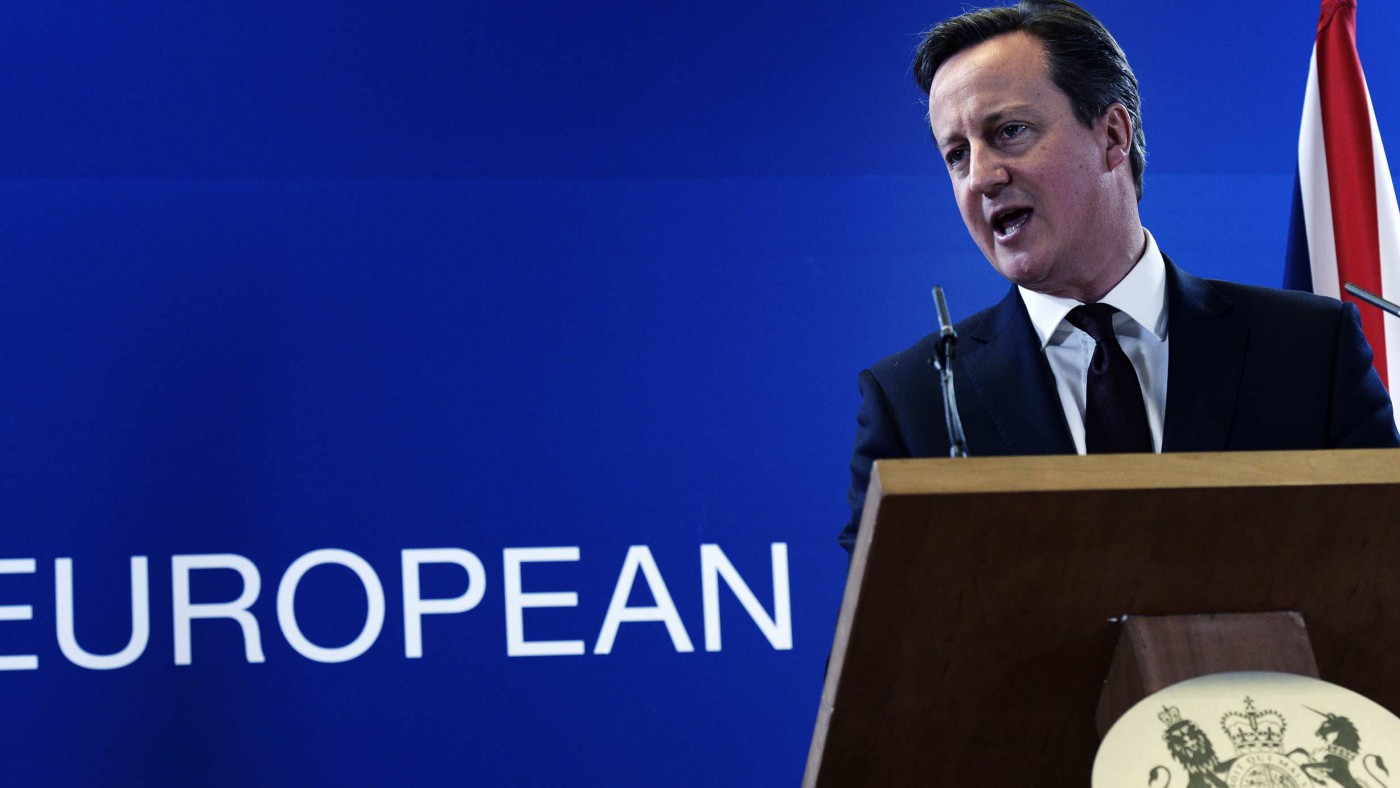Britain, my friend Dan Hannan laments, does not negotiate her own trade deals. This is perfectly true. As a member of the European Union, the UK has pooled its trade policy with a single market of 500 million people. Dan regards this as a tragedy – but it is in fact a triumph. In order to explain why, let us first consider the alternative.
Free of Europe, some say, Britain would be able to negotiate her own trade agreements with places like China. They are correct, and I have no doubt that the Chinese relish the thought. Who does the ‘out’ campaign think will wield more power in a Sino-British trade negotiation – the sixty-five million consumers of Britain, or the billion potential customers of China? In geopolitics, numbers still matter, and the idea that Britain can retreat from scale, yet still dictate terms to a global economy, is naïve at best.
This is what I call the “Swiss Delusion”.
It’s the idea, repeatedly put forward by ‘out’ campaigners, that if they succeed, success will look a lot like Switzerland or Norway, or Hong Kong, or Singapore. My fear is not that they may be wrong, but that they are in fact right. If they are right in their analysis, and succeed, then they will have made a catastrophic mistake.
Switzerland and Norway are fine countries. But they are not world powers. They do not influence global events, or have much of a say at all in the great decisions of the day. These are countries to which trade deals are dictated, whose market regulations are set by the European Union (in which they have no voice) because that is the market into which they sell. If they want to remain economically viable, these countries have no choice but to accept the trade terms that the EU and other large trading partners dictate to them.
The idea that Britain should aspire to geopolitical irrelevance should offend any right-minded Brit. One of the critical tools in the British soft power arsenal is its ability to access and influence a marketplace of half a billion people. If that power is abandoned, it can never be regained.
One of the first things that students of economics are taught about – day one, lesson one – is economies of scale. Bigger is better. Bigger is more powerful. Bigger is cheaper. In the history of mankind, economic power has been predicated on economic scale. The ability to influence an enormous marketplace will always be more valuable than sole control over a small one.
All of the economic arguments for departure from the Union made by ‘out’ campaigners ignore this, and seem to be predicated on the rather strange idea that remaining in the EU is in fact making Britain less prosperous and less influential. In that argument, they are grievously wrong.
What is it, precisely, that makes Britain an attractive place to do business, if you are Chinese? Is it the relationship with the English speaking world, or is it that when you locate in Britain, you have access to one of the largest single markets in the world? When George Osborne goes to China, he is not simply selling Britain, as eurosceptics imagine. He is selling Europe, and Britain’s access to Europe.
It is true that it is unlikely that departure would mean an end to that access. Britain would, as out-ists argue, become a Norway, or a Switzerland. A satellite state, forced by circumstances to conform to European norms but never to shape them. Companies that want influence in Brussels and a voice in the European marketplace on matters of regulation will not find that voice or that influence in Whitehall, but may find it in Dublin or the Élysée Palace.
What then, of trade agreements, and Britain’s inability to independently negotiate them? Well, let’s finish by looking at Switzerland, and its trade agreement with China. Under the agreement, 99.7% of Chinese imports to Switzerland will be tariff-free. Unfortunately for the Swiss, the reverse is not true. Almost a fifth of Swiss exports to China are still subject to Chinese tariffs. The Swiss had no choice, of course – if you’re a small country negotiating with China, you pretty much take what you’re offered. There has been scant analysis of the deal China did with Iceland, but I will go out on a limb and suggest that the three hundred thousand people of Iceland did not manage to hold the People’s Republic over a barrel during negotiations.
There is much wrong with the European Union. Nothing that is wrong, however, will be corrected by a British departure. In fact, without the moderating voice of Britain, those objectionable parts of the EU’s nature may be asserted further, and Britain will have to live with them anyway, because she will need access to the EU’s markets.
That moderating British voice is vital. Britain has always been the strongest voice in Europe for free people and markets. She has always been the strongest bulwark against the worst instincts of Brussels. She has always been the most consistent voice for reform. To be a truly global power, Britain needs to leverage Europe. Just as Europe needs Britain.


